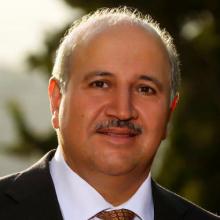You are here
OPEC+decision and the Kingdom Saudi Arabia
Oct 22,2022 - Last updated at Nov 01,2022
Kingdom of Saudi Arabia does not deserve the attack it has been subjected to because of the OPEC+decision claims regarding cutting oil productionby 2 million barrels per day. Although, the decision could only be theoretically, because some of the countries of the organisation will not commit to this decision. OPEC's decision was based on studies prepared by the organisation (OPEC) on market supply and demand considering fears of an incoming global recession. In support of that decision, the 2 million barrels per day production cut does not increase oil prices and remained at affordable price close to oil prices before the Russian-Ukrainian war.
Oil for the Kingdom of Saudi Arabiais an element of stability and a major stream revenue to its fiscal budget, and any shortage in oil revenues below certain limits will put the Kingdom on the side of borrowing as it simply need the price of $ 50/ barreljust to cover wages and salaries for workers and retirees. The Kingdom needs the price of $ 80/ barrel to achieve balance in its fiscal budget, which has not seen a surplus since 2014 in the sense that they were borrowing billions of dollars in debt to offset deficit during those past yearsbecause of low oil prices, the consequences of the COVID-19 pandemic and suspension of Umrah visits for foreigners.
This financial imbalance forced the government of the Kingdom of Saudi Arabia to take austerity measures in 2020 so that it touched the daily life of the Saudi citizen where it raised the value-added tax from 5 per cent to 15 per cent as well as the cancellation of the living allowances for the employees of the public sector and the postponement of many 2030 vision projects due to austerity measures aimed at reducing the budget deficit.
The OPEC+ decision was taken unanimously by the member states of the organisation and was not a Saudi- Emirati decision. The decision was taken based on economic-mathematical models that take into account supply and demand inglobal oil markets considering a possible or upcoming economic recession. Neither the Kingdom of Saudi Arabia nor the United Arab Emirates shall be held responsible, even if there are political consequences and international political overtones for the results of the decision. These Arab countries have all the rights to protect their national interests and financial stability to protect their economies and their citizen’s standards of living.
It’s worth to mention that there is even an Arab interest in this regard because these Arab oil-exporting countries such the Kingdom of Saudi Arabia, the United Arab Emirates and Kuwait are the ones who help the Arab countries with social and infrastructure programs, andwithout exception to any Arab country over the past decades. Indeed, these countries has gone overseas to include most of the poor countries of the world, especially the African continent and most recently is the generous assistance of Saudi Arabia to Ukraine, which amounted to $ 400 million.
If it is rightful to object to countries protecting their interests because others are affected, then we as low income countries have the right to object to the rise in the prices of wheat, forage and vegetable oils due to the Russian-Ukrainian war, the consequences of which we have borne in terms of price rises and inflation without having any involvement in this ongoing war that has destroyed infrastructure and economies of many countries of the world.
The author is a former minister of Water and Irrigation, and Agriculture and former member of Jordan’s House of Representatives.










